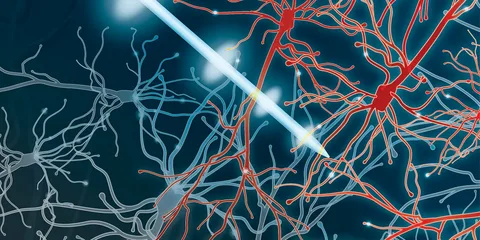A recent clinical trial has showcased remarkable progress in the treatment of glioblastoma (GBM), a deadly form of brain cancer, using a groundbreaking next-generation CAR-T therapy. The project, known as INCIPIENT, conducted by researchers from the Mass General Cancer Center, has demonstrated significant tumor regression in the initial patients who underwent the novel treatment.
Published in the New England Journal of Medicine, the study highlighted the outcomes of the first three patient cases from the Phase 1 clinical trial evaluating CARv3-TEAM-E T cells in recurrent GBM patients. Within days of receiving a single treatment, the patients experienced substantial reductions in their tumors, with one individual achieving nearly complete tumor regression. Although tumor progression was observed in these cases over time, the encouraging preliminary results have spurred the research team to explore strategies to enhance the durability of the response.
Dr. Bryan Choi, a neurosurgeon and associate director of the Center for Brain Tumor Immunology and Immunotherapy at Mass General Cancer Center, described the innovative cell therapy as a significant advancement from bench to bedside, addressing an urgent unmet medical need within a short period of five years. The novel approach combines two therapeutic modalities to target GBM comprehensively, offering a potentially more effective treatment strategy for this challenging cancer type.
Led by Dr. Marcela Maus, director of the Cellular Immunotherapy Program at Mass General Cancer Center, the collaborative effort behind the CAR-T therapy underscores years of dedication to translating laboratory innovations into clinical applications for cancer patients. The integration of genetically modified T cells and bispecific antibodies, known as T-cell engaging antibody molecules (TEAMs), has shown promise in overcoming the heterogeneity of solid tumors like GBM.
While the study results are promising, indicating a step in the right direction, the researchers acknowledge the need for further refinement to achieve prolonged responses and ultimately cure patients with GBM. Strategies such as serial infusions or preconditioning with chemotherapy are being considered to extend the efficacy of the CAR-T therapy and enhance patient outcomes.
Dr. Elizabeth Gerstner, a neuro-oncologist at Massachusetts General Hospital, emphasized the rapid and dramatic responses observed in the initial patient cohort, underscoring the importance of ongoing research efforts to advance the treatment landscape for GBM patients. The collaborative and multidisciplinary approach adopted by Mass General Brigham’s Gene and Cell Therapy Institute in translating scientific discoveries into clinical breakthroughs highlights the institution’s commitment to revolutionizing cancer care.
In conclusion, the early success of the next-generation CAR-T therapy in treating glioblastoma offers hope for patients with this challenging disease. While further research and clinical developments are warranted, the groundbreaking approach represents a significant advancement in the field of cell therapy for solid tumors, paving the way for transformative treatments and improved patient outcomes.
*Note:
1. Source: Coherent Market Insights, Public sources, Desk research
2. We have leveraged AI tools to mine information and compile it



